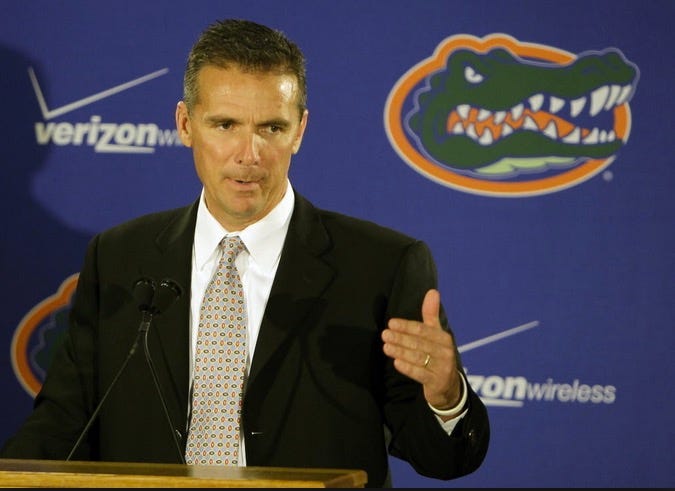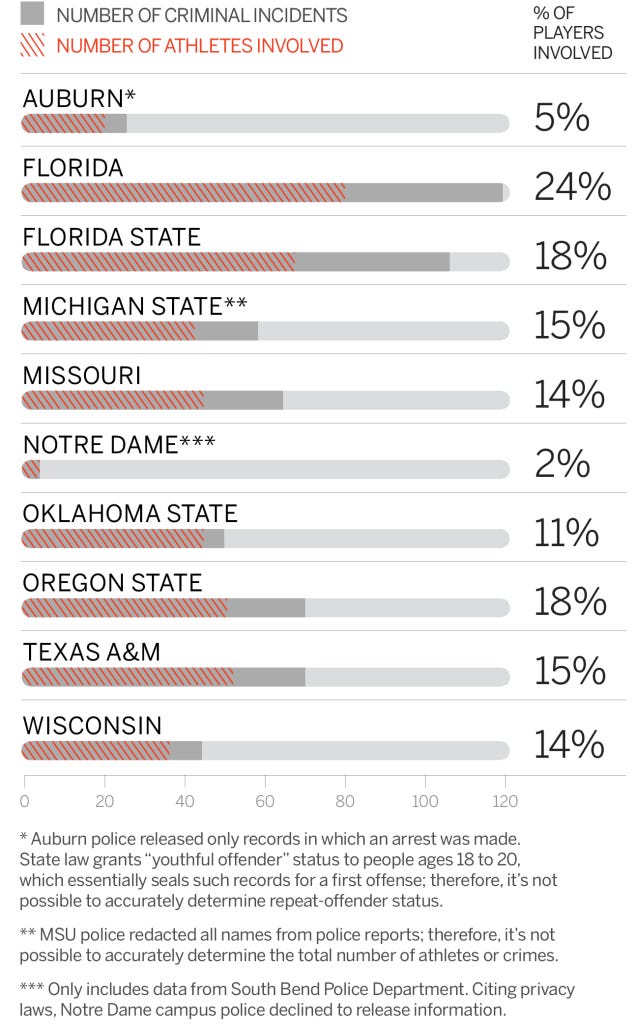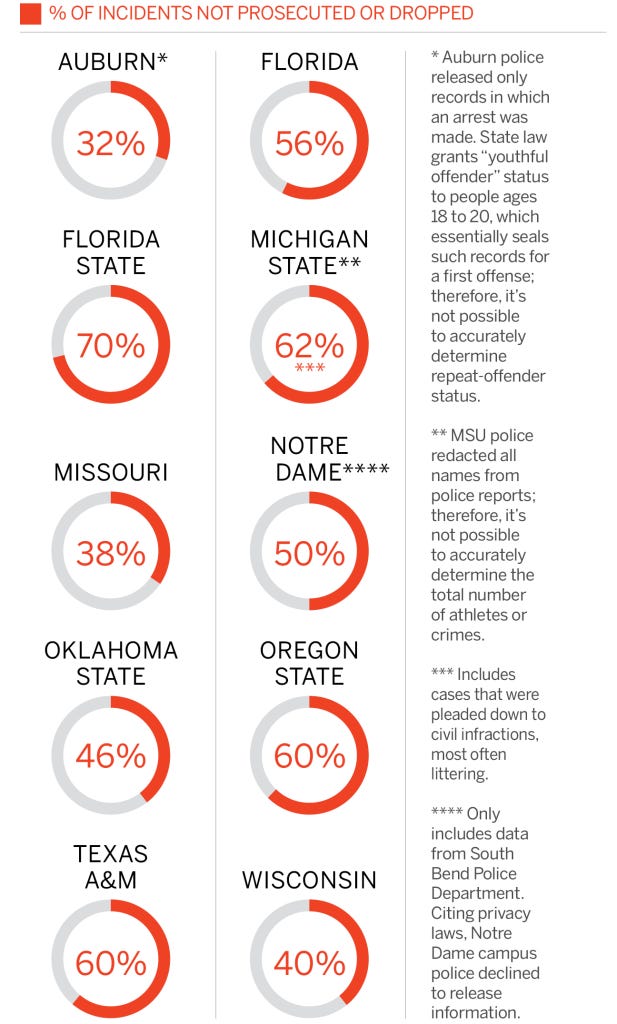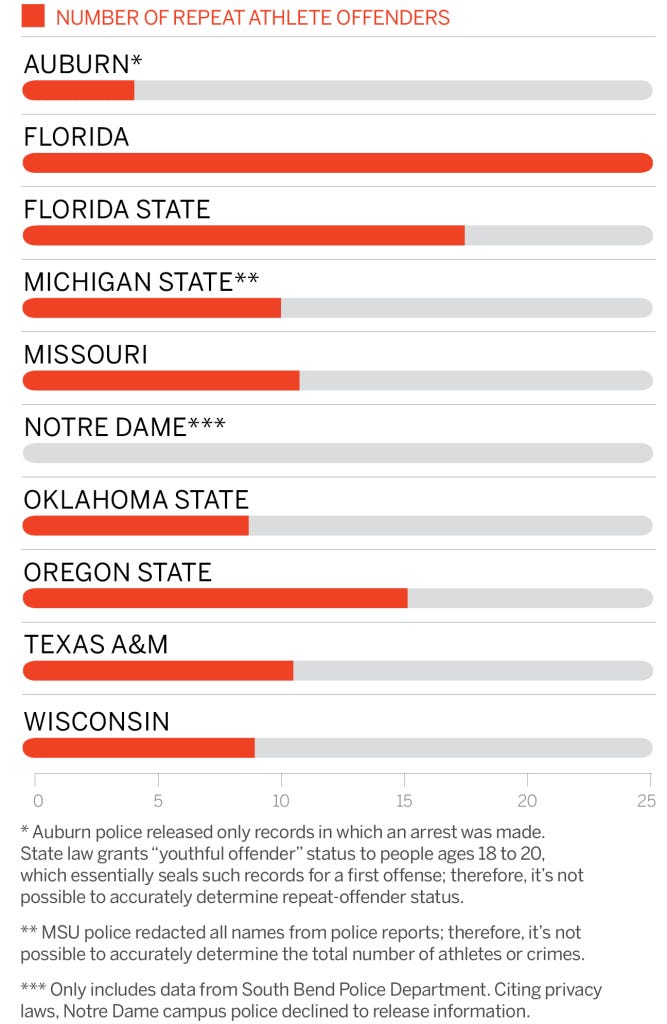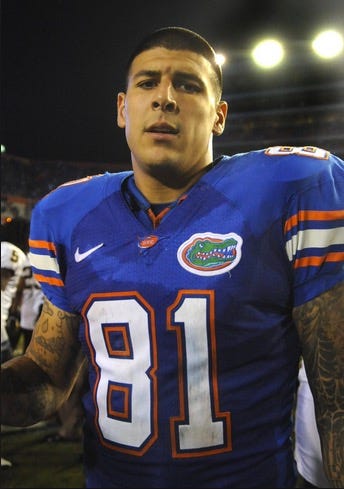ESPN Report Outlines Which College's Athletes Get Away With The Most Crimes...Spoiler Alert, It's Florida
OTL – As a University of Florida running back, Chris Rainey was named a suspect in five crimes in Gainesville. He faced charges once.
Rainey’s experience as a star athlete accused of criminal activity — stalking, fighting, injuring someone with fireworks — but ending up with a mostly clean record is not uncommon: From 2009 to 2014, male basketball and football players at the University of Florida and Florida State University avoided criminal charges or prosecution on average two-thirds of the time when named as suspects in police documents, a result far exceeding that of non-athlete males in the same age range, an Outside the Lines investigation has found.
Last fall, to determine how often crimes involving college athletes are prosecuted and what factors influence them, Outside the Lines requested police reports involving all football and men’s basketball players on rosters from 2009 to 2014 from campus and city police departments covering 10 major programs: Auburn, Florida, Florida State, Michigan State, Missouri, Notre Dame, Oklahoma State, Oregon State, Texas A&M and Wisconsin. Some police departments withheld records citing state disclosure laws. (ESPN sued the University of Notre Dame and Michigan State University for not releasing material; both cases are pending on appeal.) And not all information was uniform among jurisdictions.
But available reports showed that Rainey’s alma mater, Florida, had the most athletes — 80 — named as suspects in more than 100 crimes at Florida. Yet the athletes either never faced charges, had charges against them dropped or were not prosecuted 56 percent of the time. When Outside the Lines examined a comparison set of cases involving college-age males in Gainesville, 28 percent of the crimes ended either without a record of charges being filed or by charges eventually being dropped.
…
Overall, the Outside the Lines investigation found that what occurs between high-profile college athletes and law enforcement is not as simple as the commonly held perception that police and prosecutors simply show preferential treatment, though that does occur. Rather, the examination of more than 2,000 documents shows that athletes from the 10 schools mainly benefited from the confluence of factors that can be reality at major sports programs: the near-immediate access to high-profile attorneys, the intimidation that is felt by witnesses who accuse athletes, and the higher bar some criminal justice officials feel needs to be met in high-profile cases.
….
Pretty interesting article from Outside the Lines over the weekend if you have time for a long read today. If not, here are the Cliff Notes:
-Every athlete at Florida from 2009-2014 was a criminal.
Ok that’s kind of an exaggeration, but not really. 80 players from the basketball and football teams were named as suspects in a crime in that time period. Eighty! That’s 25% of them. Over 5 years. 56% of them had their charges dropped and forgotten about. Janoris Jenkins, a star of the article, personally had 3 separate incidents that nothing came from, including this one –
In another Florida incident, on May 30, 2009, police arrested cornerback Janoris Jenkins for fighting and resisting arrest. An officer wrote that he saw a group of men fighting and yelled at them to stop, but they continued. He drew his Taser and fired at Jenkins after he saw him punch another man in the head. But Jenkins got up and ran away, ignoring commands to stop.
Not exactly shattering the earth with revelations here, athletes get special treatment in college towns. Always been that way and probably always will be. Still pretty crazy to see it laid out like this.
Don’t ever let anyone tell you that Urban didn’t lay the discipline hammer down on his guys.

